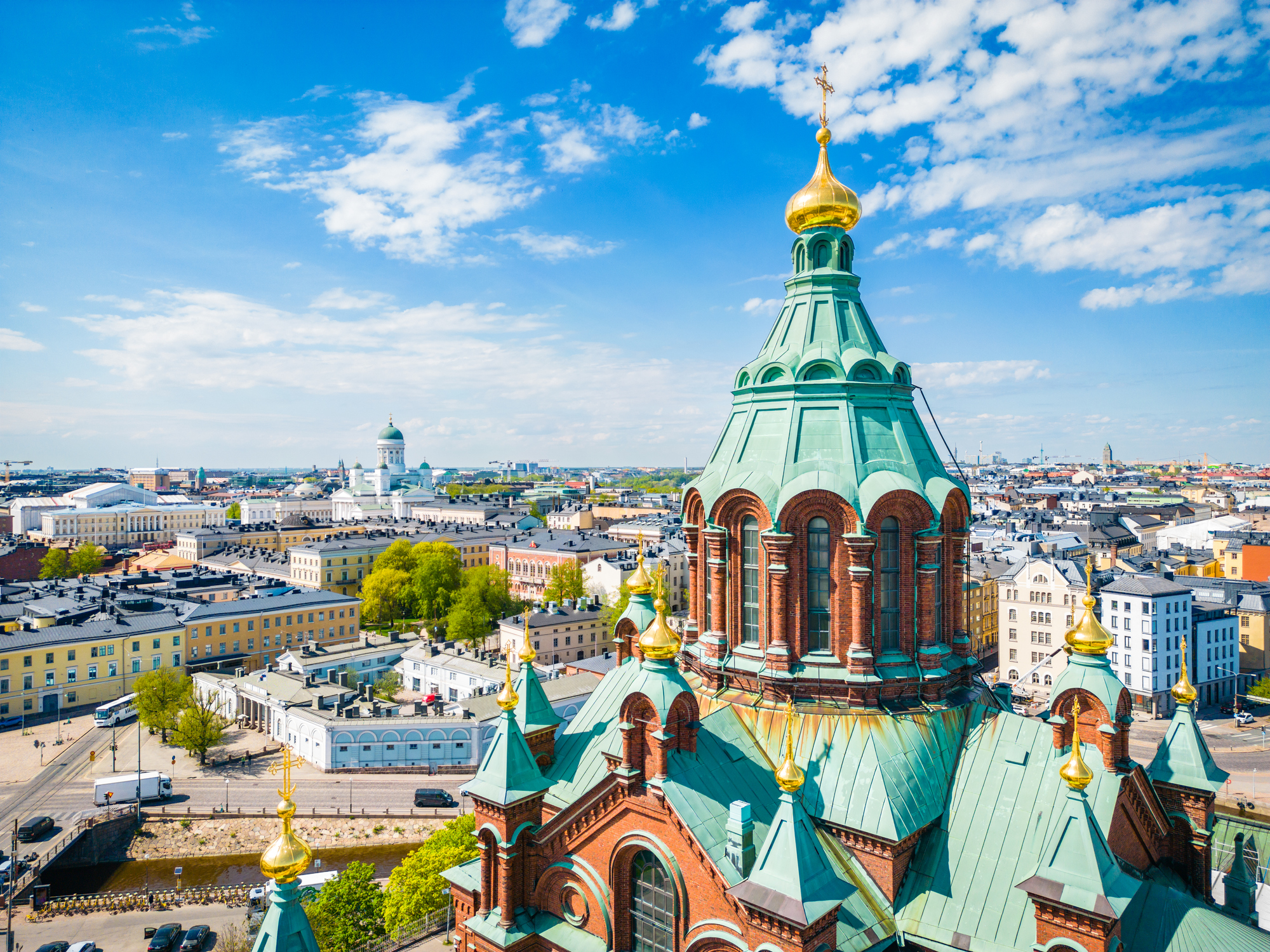‘Jamal Edwards gave a generation of young black artists the chance they needed’
Your digest of analysis from the British and international press

- 1. Jamal Edwards’ support changed my life, he inspired a whole generation of young people
- 2. I grew up near an open prison. The number of escapes now is really alarming
- 3. Removing Covid protections is horribly foolish move by Boris at this moment
- 4. Where’s the outcry over the Post Office scandal?
- 5. This could be perfect time for United Nations reform
A free daily email with the biggest news stories of the day – and the best features from TheWeek.com
You are now subscribed
Your newsletter sign-up was successful
1. Jamal Edwards’ support changed my life, he inspired a whole generation of young people
Nego True at the i news site
on a lasting legacy
“Who would’ve thought that someone who started as a 15-year-old with a camera could go on to capture the hearts of the country, inspire a whole generation of musicians and build a legacy that will be felt in British culture for decades to come,” asks Nego True at the i news site. But “that is what my friend Jamal Edwards did”, says the rapper and author. Edwards’s SBTV platform was founded in 2006, and the music entrepreneur introduced many of today’s mega-stars to audiences for the first time. Every day, “Jamal and his small team would upload a potential star”, giving audiences access to new music. “This also gave an entire generation of young black artists what they needed: a chance.” Edwards provided “opportunity” for “an untold number of kids who without him wouldn’t have had many options”. Following the news of his passing, True says he hopes people can “find joy in knowing there’s an entire generation of kids” able to “provide for their families because of Jamal”. He was “one brave, selfless, ambitious champion”.
The Week
Escape your echo chamber. Get the facts behind the news, plus analysis from multiple perspectives.

Sign up for The Week's Free Newsletters
From our morning news briefing to a weekly Good News Newsletter, get the best of The Week delivered directly to your inbox.
From our morning news briefing to a weekly Good News Newsletter, get the best of The Week delivered directly to your inbox.
2. I grew up near an open prison. The number of escapes now is really alarming
Zoe Beaty at The Guardian
on yet another jailbreak
Zoe Beaty says there was “a thrilling danger about growing up close to the open prison known as HMP North Sea Camp” in Lincolnshire. This week, she writes at The Guardian, reports that convicted sex offender Paul Robson had “absconded” from the prison came as “no surprise” to those living near that same jail. Beaty recalls a friend’s tales of police “knocking at the door” looking “for escapees”, and “it was common knowledge” during the 1990s that prisoners “came in during the weekends or holidays to do painting and fixing work” at her school. This week, however, she told her teenage twin sisters “to stay at home”. Beaty asks if moving “dangerous sex offenders” to open prisons was “really appropriate”. Robson has been caught, “but while the system remains inadequate, there are still a whole host of other dangerous offenders putting another generation at risk”.
A free daily email with the biggest news stories of the day – and the best features from TheWeek.com
3. Removing Covid protections is horribly foolish move by Boris at this moment
The Voice of the Mirror
on rule relaxations
“Abolishing free Covid-19 tests on April Fool’s Day seems like a bad joke when even incompetent Boris Johnson recognises that this fatal pandemic is not over,” says The Mirror. Removing the current coronavirus restrictions in England “is horribly foolish at this moment”, and ultimately “owes everything to the Prime Minister’s egotistical desperation to applaud himself and appease restriction-hating Conservative MPs who might write letters demanding a no confidence vote to boot him out of No. 10”. This is “a failure by Johnson to do what is right for the nation’s health”. And though “nobody wants to be told what to do”, most people “will obey whatever is stipulated” in law in order to protect “themselves, their families, neighbours and workmates – unlike the charlatan PM who broke his own lockdown laws with boozy parties”, says the newspaper.
4. Where’s the outcry over the Post Office scandal?
Melanie Phillips at The Times
on devastating indifference
Between 2000 and 2014, more than 730 sub-postmaters were prosecuted for theft, fraud and false accounting. “Their lives were destroyed. A number were jailed. They were financially ruined, made homeless, socially shunned,” writes Melanie Phillips at The Times. Some “had their mental health shattered or their marriages fall apart. At least four committed suicide.” These Post Office employees were “innocent of wrongdoing”, convicted “on the basis of false evidence from a faulty computerised accounting system”. However, “this appalling affair has revealed a rot” far beyond the Post Office. “It involved the abuse of private prosecutions” and “the complacency or dereliction of duty by successive government ministers who batted away concerns when expressed over the years by various MPs”. There have been “periodic reports” about the scandal, but they have “failed to spark public outrage or concern”. Phillips says: “It’s hard to avoid the conclusion that this was because the victims were just ordinary people from modest backgrounds.” And the public’s indifference is perhaps “the most devastating aspect of all”.
5. This could be perfect time for United Nations reform
Roddy Gow at The Scotsman
on grounds for hope
The UN Security Council “must be past its sell by date”, writes Roddy Gow at The Scotsman, “with Russia and China consistently vetoing efforts to reach unanimity on motions to achieve peace on a global basis”. The two countries’ “own self-interest runs counter to the UN’s charter”. It also highlights “the need to overhaul the organisation and its method of operation”. And while “a pessimist might say such an exercise is too difficult… an optimist might judge this as just the time, with frustrations over Ukraine and Chinese policies running high”. Gow, the chairman and founder of the Asia Scotland Institute, writes that this year’s Winter Olympics in Beijing were not so far from “Berlin in the summer of 1936”. As he says: “The optimist will highlight how clear it is that any authoritarian government is exposed by the presence of so many high achieving athletes who represent the future.” And Russia’s position on Ukraine “may well have served to unite Western opinion” behind the eastern European country. “Again, grounds for hope for the optimist.”
-
 Local elections 2026: where are they and who is expected to win?
Local elections 2026: where are they and who is expected to win?The Explainer Labour is braced for heavy losses and U-turn on postponing some council elections hasn’t helped the party’s prospects
-
 6 of the world’s most accessible destinations
6 of the world’s most accessible destinationsThe Week Recommends Experience all of Berlin, Singapore and Sydney
-
 How the FCC’s ‘equal time’ rule works
How the FCC’s ‘equal time’ rule worksIn the Spotlight The law is at the heart of the Colbert-CBS conflict
-
 ‘Irony’ as Zoom calls staff back to office
‘Irony’ as Zoom calls staff back to officefeature And other stories from the stranger side of life
-
 The U.S. veterinarian shortage crisis
The U.S. veterinarian shortage crisisSpeed Read With an anticipated shortage of 15,000 vets by 2030, it will be harder to get care for pets
-
 Conditions at Guantanamo Bay inhumane and cruel, UN investigator says
Conditions at Guantanamo Bay inhumane and cruel, UN investigator saysSpeed Read
-
 Company teaches mask-wearers to smile again
Company teaches mask-wearers to smile againfeature And other stories from the stranger side of life
-
 Pros and cons of cash transfers in humanitarian aid
Pros and cons of cash transfers in humanitarian aidPros and Cons The number of people around the world receiving direct monetary aid has risen 240% since 2020
-
 Western diplomats slam Russia's Sergey Lavrov during UN meeting
Western diplomats slam Russia's Sergey Lavrov during UN meetingSpeed Read
-
 Global happiness has been 'remarkably resilient' over the past three years
Global happiness has been 'remarkably resilient' over the past three yearsfeature
-
 U.N. nuclear watchdog says 2.5 tons of uranium is missing from Libyan site
U.N. nuclear watchdog says 2.5 tons of uranium is missing from Libyan siteSpeed Read